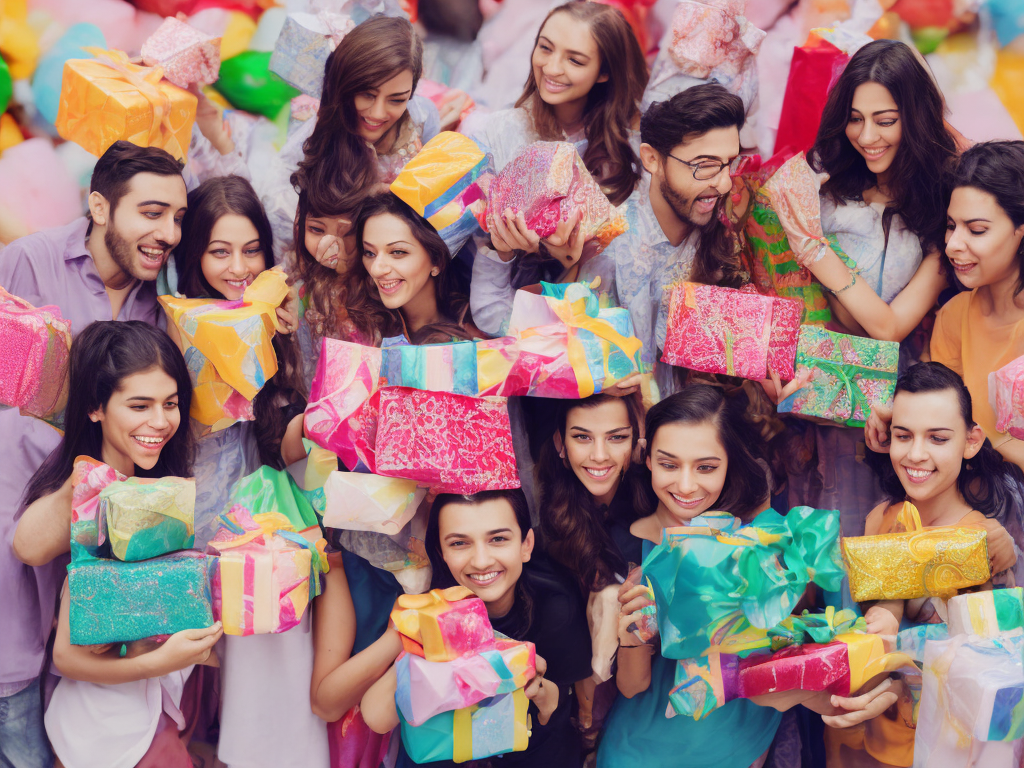
As Eid approaches, it's important to know how to wish someone a happy Eid. Eid is an important holiday to Muslims around the world, and it's the perfect time to send greetings to friends, family, and loved ones. Whether you're a Muslim or not, learning how to express the right sentiments can make your message more meaningful and show your respect for the occasion.
Eid is a significant festival for Muslims that is celebrated twice a year - Eid al-Fitr and Eid al-Adha. Eid al-Fitr celebrates the end of the holy month of Ramadan and marks the beginning of Shawwal, the tenth month of the Islamic calendar. It is a time of happiness, celebration, and forgiveness, during which Muslims gather with their families and friends to exchange greetings, gifts, and delicious food.
Eid al-Adha, on the other hand, is the festival of sacrifice that marks the end of the Hajj pilgrimage to Mecca. It honors the willingness of Prophet Ibrahim to sacrifice his son Ismail to show his submission to God's command. Muslims worldwide celebrate with feasts, donations to the poor, and exchanging greetings.
When greeting someone on Eid, there are several phrases you can use to convey your wishes of happiness, peace, and prosperity for them and their loved ones. These phrases vary depending on the Eid celebrated and the cultural traditions of the people greeting one another.
One of the most common greetings for Eid al-Fitr is "Eid Mubarak." This phrase means "blessed Eid" and is widely used among Muslims around the world. It can be used as a standalone greeting or in a sentence such as "Wishing you and your family Eid Mubarak."
Another common greeting is "Eid Saeed," which means "happy Eid." It's a simpler version of Eid Mubarak and can be used in casual conversations, texts, or social media posts.
If you prefer to be more formal, you can use "Kullu Am Wa Antum Bi Khair," which translates to "May every year find you in good health." It's a respectful and traditional Arabic greeting that conveys your wishes for their well-being and happiness in the coming years.
If the person you're greeting is non-Arabic, you can use "Selamat Hari Raya," which means "happy festival" in Malay. It's commonly used in Malaysia, Indonesia, and other Southeast Asian countries during Eid al-Fitr and is a good way to show respect for their culture and traditions.
For Eid al-Adha, the most common greeting is "Bakra Eid Mubarak," which means "blessed Eid of the sacrifice." It honors Prophet Ibrahim's willingness to sacrifice his son and is a traditional way to acknowledge the holiday's significance. You can also use "Eid-ul-Adha Mubarak," which is a more formal and respectful greeting.
If you're greeting someone from Pakistan or India, you can use "Eid Mubarak ho," which is a common way to say "Eid Mubarak" in Urdu and Hindi. The phrase conveys your good wishes for them and their family during the holy occasion.
In addition to these traditional greetings, you can add a personal touch to your message by including a heartfelt message, a relevant Quranic verse, or a quote from a respected Islamic scholar or leader. You can also use social media platforms like Facebook, Instagram, or Twitter to send greetings to people who are far away from you, including friends, family, and colleagues.
When sending a text message, email, or social media post, ensure that your message is clear, concise, and respectful. Use simple and straightforward language, avoid using abbreviations or slang, and proofread your message before sending it. Avoid sending mass messages or spamming, as they can be seen as insincere or inappropriate.
In conclusion, greeting someone on Eid is an important tradition for Muslims, and it's a way to show respect, goodwill, and happiness for the occasion. Knowing how to express your sentiments can make your message more meaningful and show your appreciation for the people you're greeting. Whether you use traditional greetings or add a personal touch, remember to be respectful and sincere, and wish them a joyous Eid full of blessings, love, and peace.
 Self-Instruct
Self-Instruct